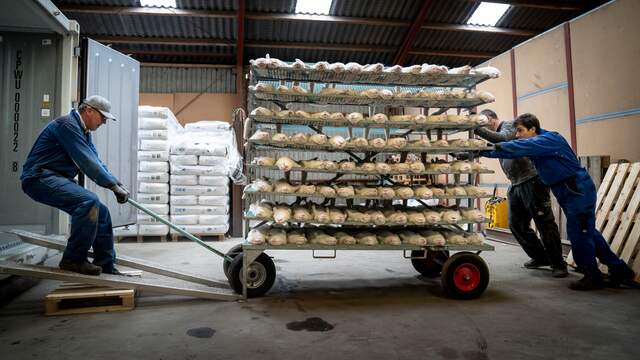Denmark has discovered a new mutant strain of the coronavirus derived from mink farms in the north of the country. The Danish authorities fear that this mutated virus could make a future corona vaccine less effective for humans. As a precaution, the country therefore has all 17 million mink killed. Five questions about these mutations found.
What kind of mutations are these and how dangerous are they?
Denmark has discovered five variants of the virus that come from mink. One of those variants is cluster 5. The Danish health institute (SSI) is most concerned about this. Research showed that the cluster 5 virus turned out to be less sensitive to antibodies, which are supposed to stop the virus.
According to Danish top epidemiologist Kare Molbak, cluster 5 is no more dangerous or more contagious than the coronavirus as we know it today, but the mutation may mean that vaccines that are currently being worked on will prove less effective.
Clusters 2, 3 and 4 are still investigating whether they are less sensitive to antibodies. This turned out not to be the case with cluster 1.
How far has the mutated virus spread?
Variants of the coronavirus from mink were found in 214 Danes between June and October. Twelve cases concerned cluster 5. This variant was also found in mink at at least five breeding farms in North Jutland in the north of the country.
This type has not yet emerged outside of Northern Jutland. To prevent this from happening, the government has imposed a strict lockdown for seven municipalities in the region. Schools, restaurants and bars will remain closed until December 3rd. Until then, public transport will not run either.
What does the mutation mean for future vaccines?
According to chief scientist Soumya Swaminathan of the WHO health organization, it is still too early to say what impact the cluster 5 mutation could have on the efficacy of potential vaccines.
However, laboratory research by the SSI shows that changes have occurred in the cluster 5 virus to the so-called spike protein. With this, the virus attaches itself to cells to enter them.
This could pose a problem for the vaccines currently under development, as most of them focus on knocking out this spike protein.
What role do minks play in the spread of the virus?
Minks are not only susceptible to the coronavirus, but have also proven to be good ‘reservoirs’ for the virus, the WHO said. Because minks are kept close together in cages, the virus can easily spread to the animals.
Unlike most other animals, minks can then transmit the virus to humans. Research shows that contamination from mink to humans and other mink occurs in the same way as from human-to-human.
 –
–
–
–
–
All 17 million mink in Denmark are culled as a precaution. The country is one of the world’s largest producers of mink fur. (Photo: ANP)
Should we be concerned about the mutation in the Netherlands?
Mutations in viruses are constantly occurring. Viruses survive by adapting to new environments. Most coronavirus mutations are harmless.
The Dutch cabinet has no signs yet that the coronavirus has mutated into mink, as has happened in Denmark. “As far as we can see now, this is not the case in the Netherlands”, said Minister Hugo de Jonge (Public Health).
In the Netherlands too, persistent infections in mink have been detected in recent months. Mink farms have therefore been cleared on a large scale. Since the start of the corona crisis, more than 1 million minks have been gassed in our country.
If there are fewer minks, the virus is also less likely to spread. The cabinet wants to put a definitive end to mink breeding by March 2021. That is three years earlier than planned.
– .

